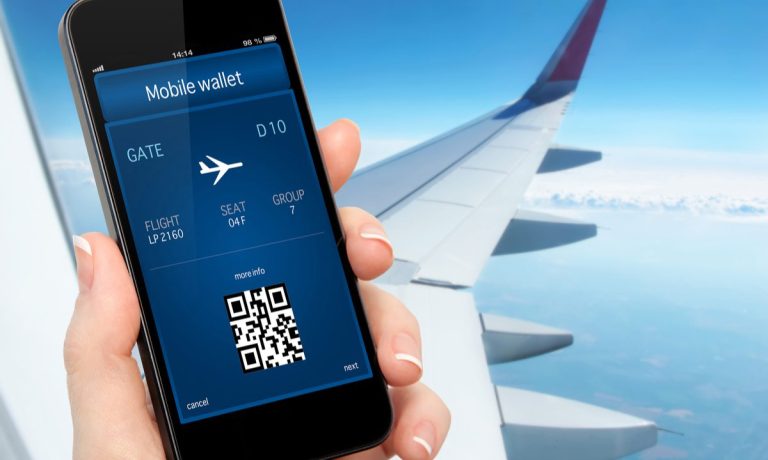Visa: Digital, Payments Choice Key To Airline Travel Rebound

Airports, ghost towns not all that long ago, are once again bustling as the world heads into the all-important holiday season and beyond.
Getting travelers hither and yon entails a complex and complicated financial supply chain — especially since travel is not confined to domestic markets, but crisscrosses continents and currencies, languages and all manner of documents, 24/7/365. And the entire process could frankly use an upgrade, said Fernando Souza, vice president of Global Segments at Visa’s global payment and fraud-management platform, Cybersource.
Souza said the pandemic has shined a spotlight on (many) friction points tied to booking flights, paying for them, traveling and rearranging plans when stuck at the airport or when unforeseen events mean changing flight dates.
The entire industry, from the airlines to the travel firms servicing them, could benefit from taking a cue from other verticals — in effect, consumerizing the interactions between consumers and enterprises, making flying the friendly skies a bit, well, friendlier.
“People don’t want to use paper tickets anymore,” Souza said. “Now, your card or your phone is your ticket.”
The digital boarding pass has become table stakes on consumers’ side of the equation, and they’re demanding that other parts of the travel continuum be digital as well.
At a high level, noted Souza, “the digital travel experience should be seamless, from the moment you leave your house until you get to your destination.”
Payments are an integral part of the experience that, optimally, should be digitized and automated across all parts of the process when paying for the flights or buying goods and services at the airport — and as the airports, airlines and travel agencies pay their own employees.
Done well, he said, those overtures — along with the customer experience they improve — can cement loyalty and turn a potentially stressful experience into a positive one.
Digitization should also streamline the steps involved in making changes on the spot.
Most consumers are all too familiar with the frustrations and even despair of long delays or cancellations, navigating rebooking and getting compensated, say, for sitting on the tarmac for six hours. The costs of not modernizing and not meeting expectations can be significant.
Lessons From the Pandemic
Souza reflected that during the pandemic, the industry was bedeviled by the issue of refunds. Airlines and travel agencies “had massive cancellations and were not prepared to handle that in an automatic way.” That lack of preparedness had ripple effects up and down supply chains — especially for financial services firms.
As chargebacks hit the banks and were not dealt with promptly, a significant number of consumers filed claims of fraud or commercial disagreement, Souza said. Vouchers became a go-to form of redress, but that opened the door for fraudsters to launch account takeover (ATO) attacks.
Souza told Webster, “Historically, these processes have been really painful. You need to go through paperwork and fill out endless forms when disruption happens.”
Many airlines have been embracing digital cash compensation options to address disruptions tied to overbooking, lost luggage and other events. But to get there, they need payment gateways and acquirers; the entire “value chain,” in Souza’s words, must become more efficient.
As part of a new partnership between Cybersource and the International Air Transport Association (IATA), said Souza, “we are delivering payments acceptance, payment processing and value-added services like fraud management and digital security to these airlines.”
Cybersource said Thursday (Nov. 4) that it had joined IATA’s Financial Gateway (IFG) to make its full suite of payment tools available to IFG. Cybersource already partners with more than 70 airlines, including 28 of the top 50 global airlines, offering online and in-person payment services.
Read more: Visa’s Cybersource Joins IATA to Streamline Airline Payments
Souza said the efforts will have broad reach, as IATA represents nearly 300 airlines that account for more than 80% of the world’s air traffic. He pointed out that IFG operates as an orchestration platform that lets airlines and travel suppliers manage payment services and processes.
Cybersource capabilities are now pre-integrated into the IFG platform, which in turn enables the airlines and travel firms to accept and process payments in 190 countries, freeing themselves from the hassle of tapping into multiple platforms to handle cross-border transactions.
Without access to the centralized offering, said Souza, “it’s a very painful technology process to get platforms integrated — and it can take several weeks or months.” But by embracing the IFG/IATA partnership, an airline no longer must navigate technological complexities or establish new acquirer relationships every time it expands into a new market or sales channel.
Souza said of activities spanning local payments acceptance to onboarding wallets to accessing enhanced anti-money laundering (AML) or fraud systems, “all of that is done — the airlines provision that into the system instead of doing all the integration themselves.”
Limiting the number of vendors and products saves time and operating costs, which accrues to the bottom line — a critical boost when considering the financial pressures the airlines experienced during the pandemic, when flights were grounded or largely empty.
With a nod to fraud management, said Souza, Cybersource tokenizes users’ credentials and stores them in the cloud. Working through IFG will offer that functionality to airlines, allowing them to tokenize payment details and other sensitive passenger data. That’s a boon for smaller airlines that have historically not had the resources to grapple with payment card industry (PCI) compliance.
In the event of cyberattacks, said Souza, “the data they get is worthless if the account and card numbers are hosted at Cybersource and Visa data centers.”
Looking ahead, he said, the joint IATA/Cybersource efforts will help “facilitate the business ambitions harbored by airlines as they expand to new geographies and new use cases. Payments are central to the business strategy — and are permeating the entire discussion.”